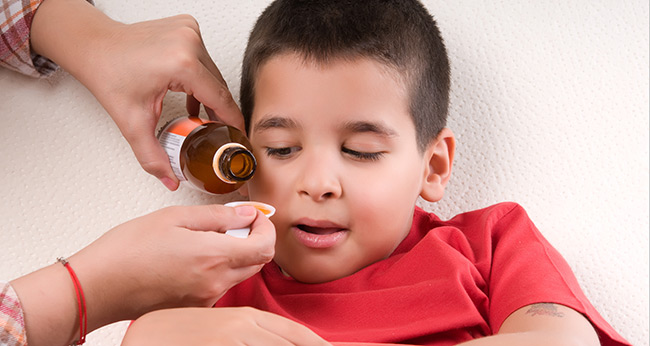| Cough Medicine: Good for Children? |
 |
| A cough is a sudden and explosive movement of air. Its function is to clear obstructive matter from the airways. It is also a reflex that protects the lungs and airways. Coughing helps to protect the lungs from particles that have been inhaled. Coughing sometimes brings phlegm - a combination of mucus, debris, and cells expelled by the lungs. Coughing commonly occurs when the airways are irritated. Respiratory infections, caused by a bacteria or virus, irritate the airways and are a common cause of coughing. Also, allergies, smoking, second hand smoke, and extreme pollution can also irritate the airways and may cause coughing. There are some questions that are needed in order to determine the cause of the coughing: • How long has the cough being present? • What time of the cough occurs? • Which factors influence the cough? • Whether the cough is accompanied with chest pain, shortness of breath, hoarseness, or wheezing • Whether the cough produces sputum or blood (matter) • Color of the sputum (yellowish, greenish, brownish, clear and sticky, bloody) helps to determine the medical condition A common treatment for cough used in children is antihistamines and bronchodilators. According to Dr. Anne Chang, a medical practitioner of pediatric respiratory medicine at the Royal Children’s Hospital in Brisbane, antihistamines cannot be recommended as empirical therapy for children with chronic cough. A child is considered to have chronic cough only after four weeks. A specific cough is associated with symptoms suggestive of an underlying problem. A nonspecific cough is a nonproductive cough (without matter) and does not have an identifiable respiratory disease. Some children with nonspecific cough may have asthma, but most do not. Nonspecific cough is likely to be “post-viral” and time will fix the problem (wait-see-and-review approach). Two larger studies have concluded that “described significant improvement” both in children who took antihistamines and those who took placebos “with no significant differences between the two groups.” The wrong approach is not the only concern stated by Dr. Chang. “Any effectiveness the drugs have should be weighed against their reported side effects such as sedation, paradoxical excitability, dizziness, respiratory depression, hallucinations, arrhythmia and even death”. The use of bronchodilators is also common. These are short-acting agents that relieve the symptoms by rapidly relaxing the muscles around narrowed airways. There is no benefit to using short-acting bronchodilators on a regular basis and there may be some harm. Many parents continue to seek treatment for their children and spending billions of dollars worldwide on cough medications every year without even considering safer alternatives. One of them is HerbalVit™ honey cough syrup. This product has become an immediate success due to its effectiveness and natural therapeutic functions. Renzo J. Bustamante-Wendorff, B.S., M.S. Research & Development |
© Copyright 2021 Natura-Genics All Rights Reserved




